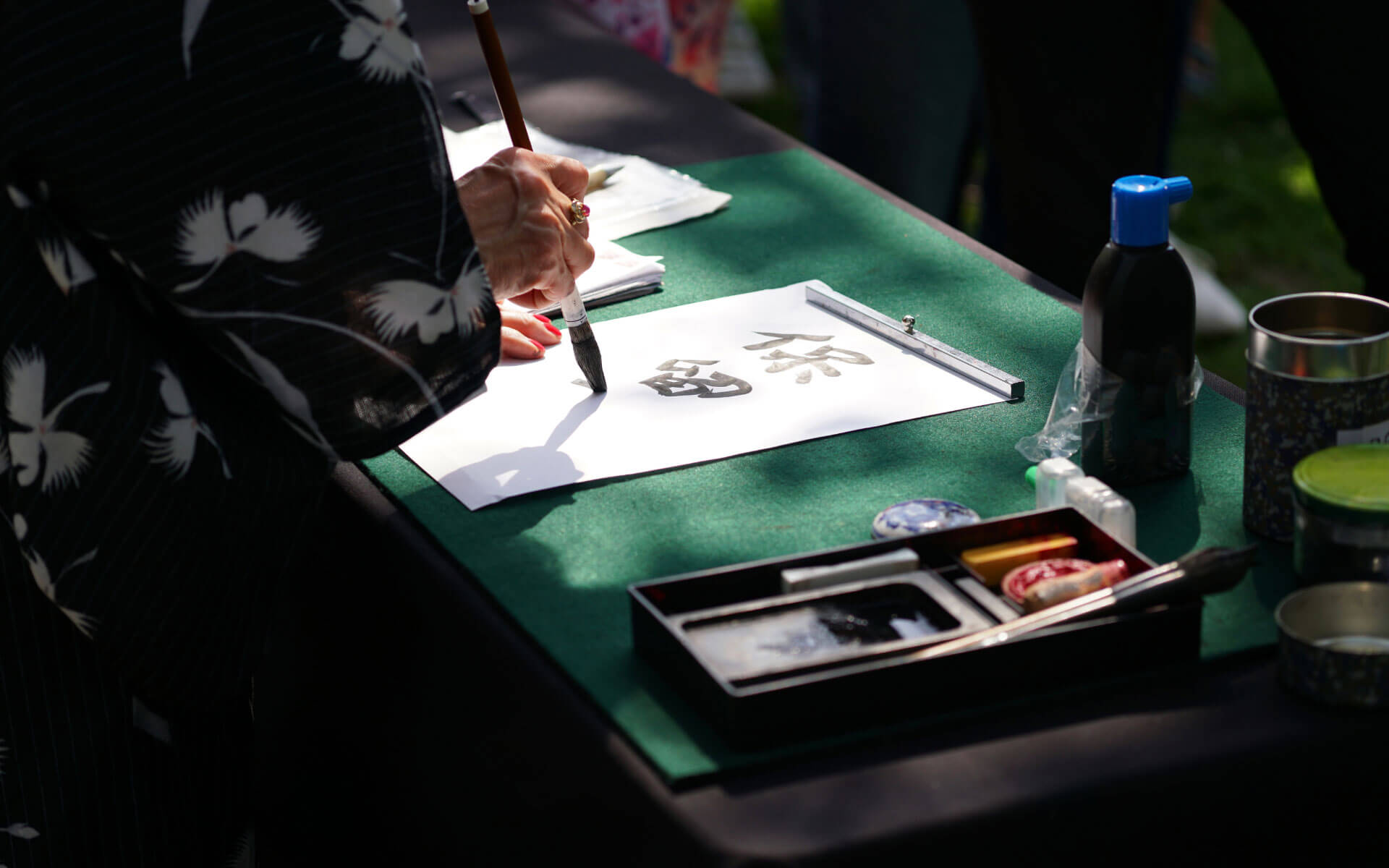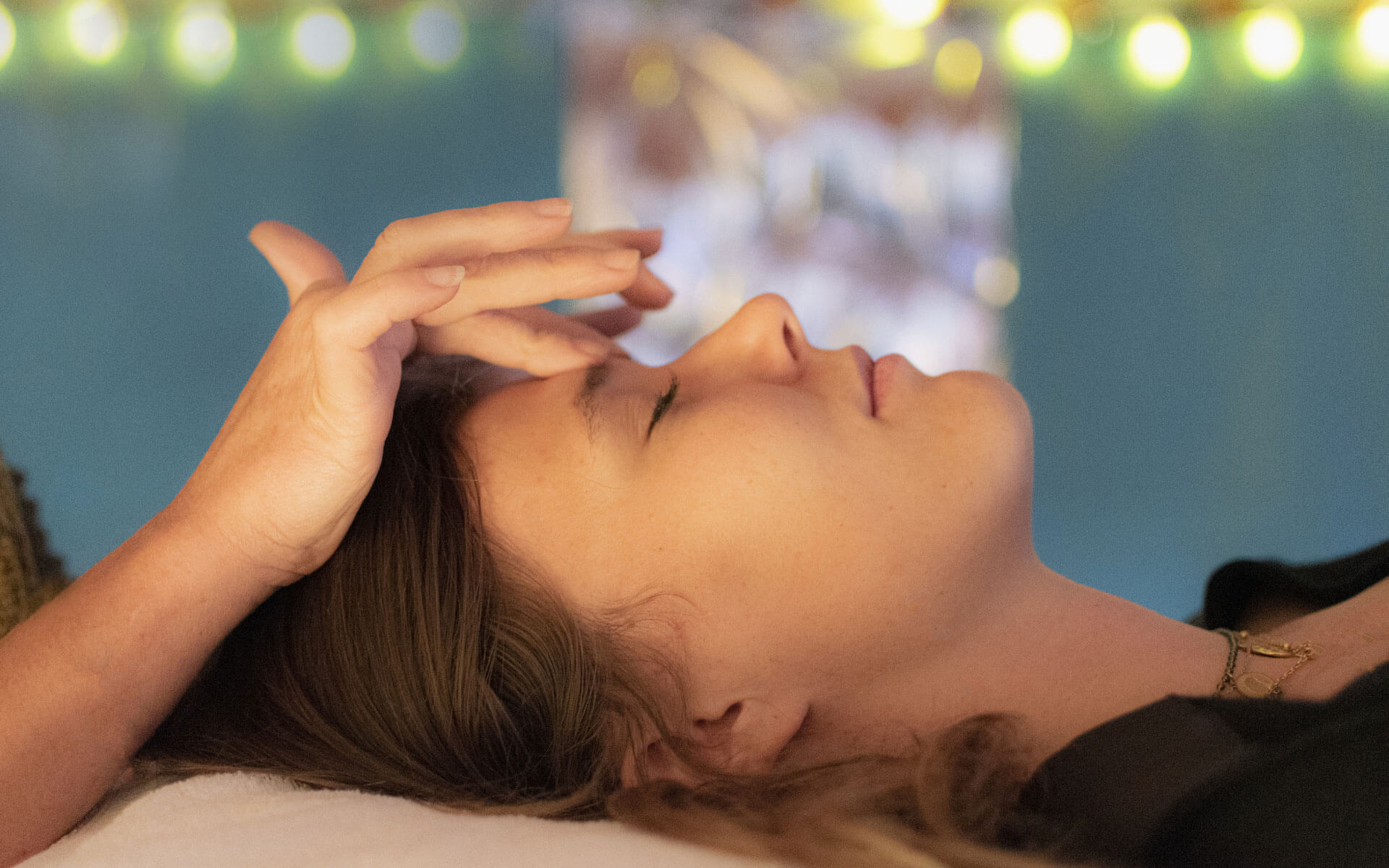Reiki is an energy healing modality that promotes well-being on physical, emotional, mental and spiritual levels.

The word Reiki comes from the Japanese root words “Rei” & “Ki”. In almost all articles about Reiki, you’ll find that they translate to “Universal” and “Life force energy” respectively. If that satisfies you, skip to the next section, but if you want to understand a bit more, read on.Ki is the Japanese version of something that’s been described by different cultures as qi, prana, life force, anima, chi, ruh, inner wind, pneuma, or holy spirit. Although they carry some distinctions, cultures all over the world and throughout history have concepts for “energy that animates and flows through living beings”.Some cultures have succeeded in mapping the pathways this energy takes through the body (these maps coincide closely to the maps of the nervous system we now have). Others have created elaborate healing practices that build on this understanding. Across most cultures, however, the understanding is this energy animates all living beings (and often contains a signature that perdures after the death of these beings) and that the stronger this energy and the better it flows, the more vitality the person exudes.In Reiki, we work with a universal loving & healing energy to help unblock, unlock and restore this vital energy. In so doing, people find their way back to physical, emotional, mental and spiritual well-being.Already hooked and want to know everything? check out our Reiki I course here.

Every practitioner has their unique flow (so if you want to be sure, ask the healer you’ve chosen to see) but in general, a session goes something like this:
- You arrive to the healing session and spend a minute getting acquainted with your healer, orienting yourself in the space. You chit-chat a bit about what brought you there and get present together.
- Together with your healer, you set an intention for the session. This can be as broad as: “helping heal whatever needs to come up for me today” (and this is the default intention of any Reiki session) or as specific as: “helping heal my dermatitis”. An intention directs the healing energy a certain way. If your practitioner doesn’t prompt you for this, you can set an intention on your own, it will direct the energy.
- You will lie down on a cozy, well-prepared massage table. You remain fully clothed. You may be invited to take a few conscious breaths and to let yourself relax and feel held by the table. You get to let go of all expectations at this point and let the Reiki do its healing magic.
- The reiki healer will do a few things to allow the Reiki to move through them. These may be visible to you or not. They may include them drawing a series of symbols in the air, placing their hands in a prayer position or them muttering a short prayer. When they’re ready, they may scan your energy with their hand by passing it about a foot above your body or immediately hone into where your energy is calling for the Reiki most. They may work from the top of the head to the feet (this is traditionally the way), or may work intuitively.
- You may or may not feel the different sensations associated with Reiki as they work. These include but aren’t limited to: tingles, waves of warmth or a pleasant cool, slight pins and needles, sensations of release, wells of emotion moving through, tremendous calm, relaxation, falling asleep and many others. You may notice awareness bubbling up, certain memories making themselves to the forefront of your consciousness, or on the contrary a wave of peace taking over your mind. There’s no way to tell what you’ll feel. It’s highly different from session to session, & from practitioner to practitioner.
- As they work, your energy healer may tell you what they notice or not. At the beginning of the session, you can usually let them know your preference. If your mind tends to be very busy it can be helpful to have something to imagine and work with while the healing energy is working. If you are craving a moment to yourself and want to deeply enter your own experience, it’s better to ask them to work in silence. They may also touch you lightly, or not. Again, this is something you can indicate your preference about at the start.
- After the reiki energy is transmitted, the healer will let you know it’s done and guide you on how to come out of the session. You may be invited to drink some water (always a good idea after energy work!).
- You and your practitioner share experiences. This can be as elaborate or stay as simple as you like. On occasion, this portion of the session can be soulfully revealing, helping you gain valuable insights into your process.
- Finally, you’ll receive a few after-care indications: things like “make sure you drink a lot of water”, “give yourself some grace as you move through the rest of the day… it’s not abnormal to feel a little vulnerable after a session”, or an invitation to help you integrate something you’ve discussed.
- Here at Reiki Memphis, it’s our aim that you always leave feeling *empowered* about the healing session you’ve received.

If you ask the internet, Reiki is great at helping people with anxiety, depression, chronic pain, insomnia, IBS, and much more. It’s all true.… and yet, as a healer with over ten years of experience who has seen over 500 different clients, I can tell you that what people really seek to (and succeed to) heal with Reiki is often described differently.Here are some situations in which Reiki is a fantastic healing modality:
- When you can remember the joyful person you used to be and you’ve lost touch with her.
- When you haven’t been feeling yourself.
- When you’re feeling stuck and blah and foggy and unclear.
- When you’re repeating the same patterns over and over and not knowing why.
- When you’ve burnt out and are in a period of deep spiritual reevaluation of how you spend your energy.
- When you seem to be way more sensitive to the unseen worlds then your friends or family are and are made to feel crazy about it.
- When you’re feeling like something is missing from your life, but you can’t quite pinpoint what.
- When you’re struggling with a health challenge (mental or physical) and are hesitating about the proposed allopathic routes available to you because you feel there’s a deeper dimension to your suffering.
- When you’re sensing that you have the power to unlock your own healing, but need a little nudge in the right direction.
- When you’re wanting to manifest something amazing into your life but you’re not quite there yet and know there are some blocks underneath the surface.
Now for the big question, does Reiki work and what does science have to say about it?Before I attempt to answer, it feels important that you know where I’m coming from. I have been a Reiki practitioner since 2010 and have conducted thousands of healing sessions. I also have a Masters in Neuropsychology.At the start of my journey, fresh out of my B.Sc. in Psychology from McGill, I was deeply skeptical of the practice. Yet, something (call it my intuition…!) kept pulling me further.Therefore, part of my path has been to explore two journeys in parallel: A personal, spiritual, healing journey facilitated by Reiki on the one hand and an intellectual journey of inquiry on the other hand.It’s my hope that you knowing my background will help you form your own idea. That said, here is my nuanced and complex answer to : “does Reiki work?”. Each point is an answer I came to from my clinical observations and I aim to elaborate on it with the science I’m aware of.I hope to clearly delineate why these are important factors and give you my conclusions at the end.
- It depends on how you approach the practice.When you’re studying something new for the first time, you’re looking for some kind of evidence that the intervention does something, that it beats a comparable placebo.Indeed, a review of 20 clinical studies suggests that Reiki is more effective than placebo, especially for patients with chronic health conditions for reducing pain, anxiety, and depression, and for improving self-esteem and quality of life.So, yes, across the board, it seems that Reiki beats a placebo.That said, I’ve observed from my clients that how you approach your reiki sessions matters. The more my clients were involved in setting their intentions and the more they were actively invested in their own healing, the more the long-lasting and far-reaching the results. In between sessions they would do their practices more, they would process their healing more deeply and arrive with a progress report on the next session. I believe a good practitioner can do many things to foster this type of involvement and engagement from their clients and I believe that this matters a great deal.These are subtleties that will be interesting to study in the future, with new study designs that can only be funded once there is already research establishing the effectiveness of the practice across the board. I believe we are getting there, slowly.
- It depends on what you’re asking it to do.As mentioned above, the studies so far are promising. They “support the ability of Reiki to reduce anxiety and pain, and suggest its usefulness to induce relaxation, improve fatigue and depressive symptoms, and strengthen overall wellbeing”.The reality, I think, is more multidimensional. It’s happened many, many times (the majority of times) that someone comes in with one healing intention and they end up finding healing in so many other areas of their life.For instance, they may come in to heal their digestion and end up healing their confidence issues and get promoted at work and their friendships become more satisfying. They may come in to help with their anxiety, and they end up reconnecting deeply to themselves, learn to reparent their inner child, igniting new passions in the process. They leave not only having healed their general anxiety but also stepping into their life with an enthusiasm and resilience that is naturally contagious.Reiki is by nature multidimensional and individualized. Working on your energy affects every single aspect of your life. This is very difficult to study quantitatively.I will also add that of the clients with whom I worked specifically on physical issues, some of those issues changed, some didn’t. However, often even when their physical issues didn’t shift, the clients themselves did, finding more well-being, or managing their condition better.I believe that there is a lot happening in a Reiki session and skilled reiki practitioners can help you find deeper healing, no matter the issue you’re working with, but that healing may not always look the way you want it to look.Of course, this is a huge problem for scientists doing quantitative studies. Perhaps qualitative studies are better suited to understand the multidimensional nature of the practice.
- It depends on your fit with the Reiki practitioner.One of the more established findings in the field of psychology is that the fit between a client and their therapist matters a great deal. It is in fact one of the biggest predictors of client outcomes. I have observed from experience that the same seems to be true for Reiki practitioners and their clients.This fit seems to have two components: (1) The practitioner and the client respect and generally like each other. They like each others’ presence. Indeed, in my experience, the more I approach my clients with genuine respect and see them in their highest light, the more they become that light. (2) The approach the therapist uses must be a good fit for the client. I have seen this to be incredibly true. Many of my clients had been doing talk therapy for years and were ready for an added somatic and spiritual component to their healing journey. I’ve seen them thrive and thrive again simply because the approach was such a good fit for them.When you’re at the start of your energy healing journey, it’s worth investing the time in getting to know your healer and feeling out if you’re a good fit. Memphis calls are an incredible way to do so. These are free calls where you get to know each other and can feel out if you’re a good fit. If you’re not, it’s no big deal and not personal. There’s nothing wrong with either person and it’s best to simply continue the search.
The science on this is simply too young, but a few theories are often mentioned as possible pathways to understanding how Reiki works. Before I go into each one, I wish to say that most of these fields of study are still very young themselves and to say they definitively explain or yet alone prove that Reiki is valid as a practice is too much of a leap for this quite conservative scientist. The truth is: while we don’t know how Reiki works in a western, scientific sense of knowing, ancient civilizations and thousands of practitioners around the world know from their experience that there is most definitely something to Reiki. (and I get to be both 😉 a conservative scientist and an intuitively knowing being who loves taking leaps of faith and trusting her own knowing)
- Interpersonal Neurobiology (IPNB).”Interpersonal neurobiology views the mind as a process that regulates the flow of energy and information through its neurocircuitry, which is then shared and regulated between people through engagement, connection, and communication.” – WikipediaThis is remarkably close to the way at least some teachers (myself very much included) view the practice of Reiki. Energy (with a loving, healing intention) flows through the practitioner to meet the receiver. In a reiki healing session, this energy is then engaged with and communicated about in a relatively structured way, between transmitter and receiver. Moreover, in an energy healing session “everything is energy” is an often used mantra that allows the practitioner and client to view all experiences the client goes through as energy. This is very consistent with the view of IPNB.From my clinical experience, I know that there is a real healing effect to this aspect of the practice and know that the more regulated and experienced in integrating different energies the practitioner is, the more healing tends to happen in a session. This is a field of study that has a lot of potential in explaining the mechanisms responsible for the success of Reiki.
- Psychoneuroimmunology (PNI).PNI studies the interaction between psychic processes and the immune, endocrine and nervous systems in the human body. It is an interdisciplinary field and offers a pathway to understand what energy healing often helps with: connecting the dots. For instance, in a reiki session, we may help a person link their intention (reduce stress) with how their energy is flowing (a difficulty flowing through the throat), with what’s going on in their life (keeping a giant secret from their loved ones), with what is happening for them medically (a frozen shoulder).PNI might offer insight into how it is that keeping a secret affects the other systems in the body while energy healing helps decode the messages from the body and possibly shift the psychic processes underlying the physical issues.From my clinical experience, I’ve seen time and time again how revealing what the body is saying through its symptoms, helps shift the symptoms themselves (including a frozen shoulder instantly unfreezing upon the revelation of a long-held secret).
- Polyvagal theory.Polyvagal is not validated as a theory itself yet, putting it on shaky ground to explain how Reiki works, BUT I find it intuitively makes a lot of sense and I value that. One of the key insights polyvagal theory puts forward is that other people are instrumental in helping us regulate our nervous system. Not only as babies, but as adults as well. In a Reiki session, the practitioner gets into a meditative state that correlates with them being in what polyvagal theory calls the ventral state of the parasympathetic nervous system. It is associated with a feeling of open-heartedness, calm, connection, curiosity and joyful energy. This nervous system state would help pull others into it as well, and help them move through the other states of the autonomic nervous system.From my clinical observations, this insight as well as countless others offered by polyvagal theory gives a mental framework that is truly helpful in guiding people back to the state of the nervous system where we feel safe, and able to devote resources to healing.
- Quantum physics.Quantum physics are often invoked as a way to “prove reiki is scientific”. I don’t agree. That said, what is very interesting is that the field of quantum physics is reaching conclusions about the very fabric and nature of reality that spiritual traditions (including reiki) had come to through different means. In particular, the parallels become very interesting with distance Reiki (and Reiki level 2). Before we can say “quantum physics explains Reiki”, many, many studies to understand how quantum physics apply to the psyche will be needed first, and then more to understand Reiki itself. Nevertheless, they are in remarkable sync and I, personally, cannot wait to see what more we learn in the next few decades.

If you’ve been reading this article to help you decide whether Reiki is the right next step for you, trust yourself. Trust your pull. Trust yourself to find a practitioner you feel right with. Maybe you need someone who totally owns their “woo” and will pull out tarot cards and candles and talk to you about spirit guides. Maybe you need someone who stays super grounded with you and doesn’t do any of that. You know you. You know what you need at this stage of your journey.Here at Reiki Memphis, we have a number of practitioners at your disposal. Review them, book a discovery call or two (or a session directly) and let yourself be transported in to the magic of Reiki.If you feel it’s for you, it likely is.


